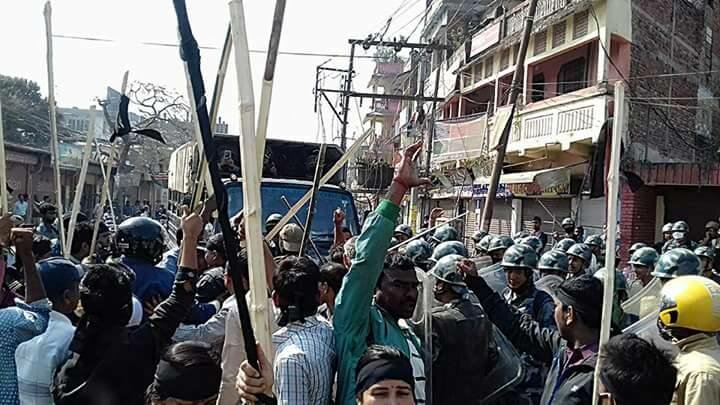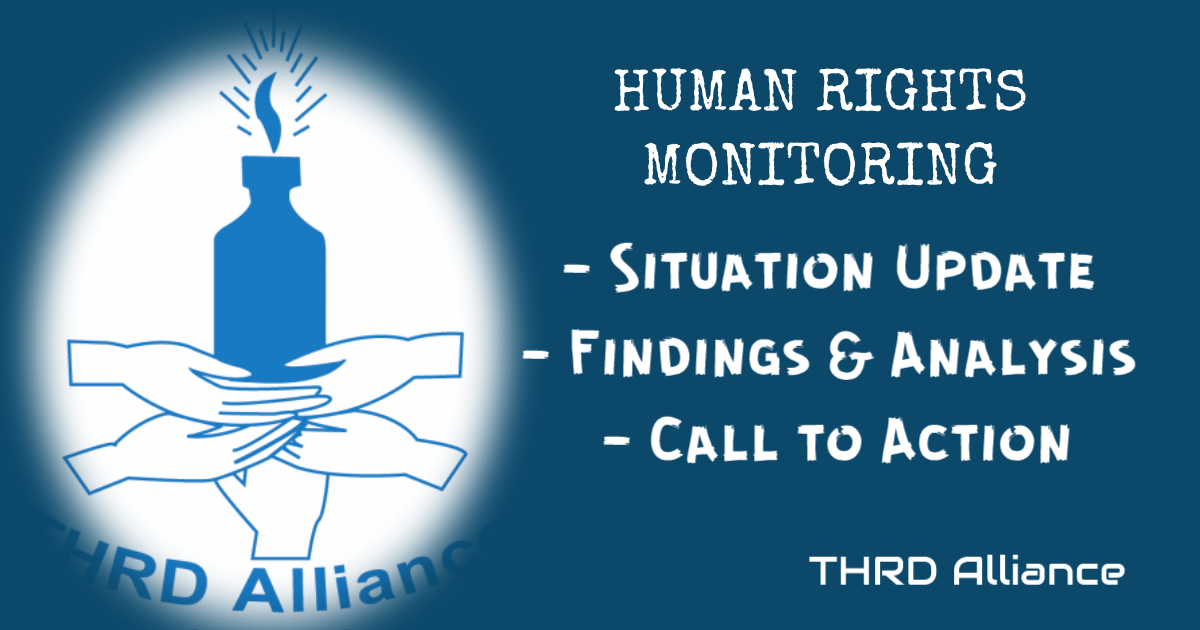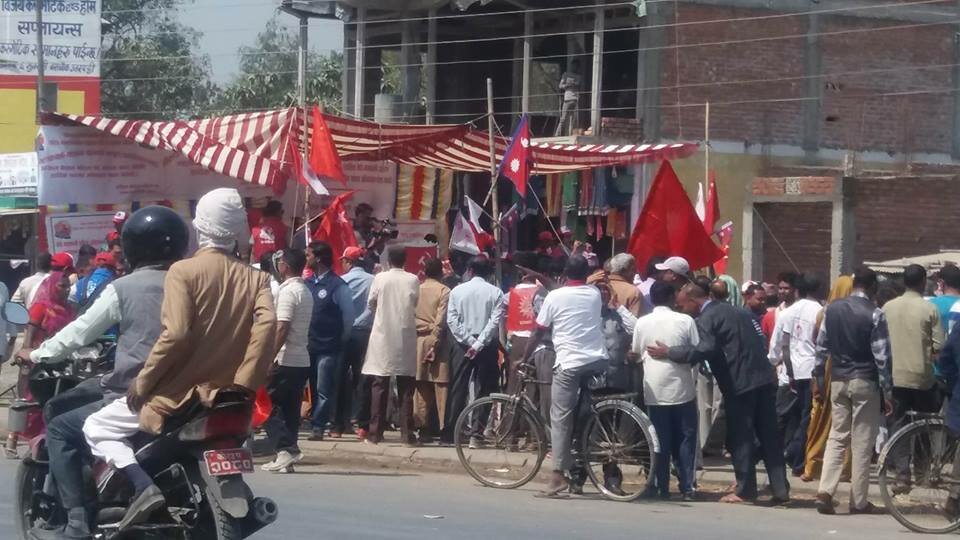Terai Human Rights Defenders Alliance expresses its serious concern over the continued extra-judicial killing by the security forces in the country. THRDA recorded five incidents of alleged extra-judicial killing in 2019 alone, including recent one of 21-year-old Suraj Kumar Pandey of Krishnanagar, Kapilvastu that occurred on October 31, 2019.
However, neither the victims of such incidents got justice nor security forces involved in the alleged extra-judicial killings faced legal actions. THRDA therefore urges stakeholders to conduct detail investigations in all the alleged incidents of the EJK.
Details of Krishnanagar Incident
THRDA’s field staffs reported that security forces led by Inspector Pratap Paudel opened fire on protesters who were protesting against security forces and administration for failing to take legal action against those involved in barricading of road during the Laxmi-Idol immersion procession.
Locals claimed that police fired more than 100 rounds of live bullets to disperse the mass. Pandey was killed and several others were injured when police used live bullets against the protesters.
Observation of THRDA’s field staffs and news reports claimed that police opened fire on Pandey around 11.30AM from 50 meter distance when Pandey was going to his tea-shop at Golghar Chowk of Krishnanagar. Pandey died on the spot after bullet pierced through his left eye.
Although, District Administration Office, Kapilvastu claimed that it had imposed curfew in the area since the morning but human rights defenders in the field claimed that the curfew was imposed only after the police killed Pandey.
Similarly, neither water cannon nor tear gas was used by the police before firing live bullets to control the escalating situation. Police neither issued any prior warning that they could fire shots below the knee nor did they give them enough time to comply with the police’s order.
In this case, security personnel responded with unnecessary and disproportionate force. The basic principle is that lethal force is permissible only in response to a specific and imminent threat to life. However, our monitoring found no evidence of such threat in this incident.
The number of Nepal Police and Nepal Armed Force mobilized in the area was highest to the ratio of the protesters and the area was completely under the control of the security forces.
However, Chief District Officer Gajendra Bahadur Shrestha claimed that the mobilization of security helped minimise damage in the area. He also added that there could have been serious damages had the administration not made adequate security arrangements. The CDO informed that he was reported of the casualty but denied giving any formal order to open fire on the protesters.
In the evening on the same day, police reached a 12-point agreement with the local protestors and made the victim’s family member sign the agreement under duress.
Based on the agreement terms, the police took into the custody of the victim’s body and took the body for autopsy. Unconvinced with the agreement, the family members of the victim demanded a detail investigation of the incident. In support with the human right activists, the victim moved a formal complaint demanding investigation into the incident and formal charge against the security offices and the officials involved in the firing.
Human rights officers also found out that both the District Administration Office and Police Office denied registering the complaint citing that the issue has been resolved by the agreement signed by two sides and no separate inquiry would now be necessary.
When insisted to register the complaint, the police officials instructed to change the name of the accused perpetrators and other details of the complaint. Human rights activists helped the victim to send the same complaint via post office.
Earlier, on June 30, a 28-year-old Saroj Narayan Singh of Ishworpur Municipality of Sarlahi district was killed during police firing in a protest on the East-West Highway. Sarlahi district in-charge of the Netra Bikram Chand (Biplav)-led Community Party of Nepal (CPN), Kumar Paudel was killed in an alleged encounter with the police on June 20.
Similarly, Dipendra Chaudhary of Kadarbona of Saptari district was killed by police in Rayapur of the same district at around 4:00 AM on January 23, while Netra Bikram Chand (Biplav)-led Community Party of Nepal (CPN), Tirthraj Ghimire, who was injured in police firing in Bhopjur, died during the treatment at BP Koirala Institute of Health Science on May 22.
Conclusion
Although, incidences of extra-judicial killings continue to take place, state authorities have failed to do proper investigation in most of the incidents and to provide justice to the victims.
On the other hand, culprits are not punished even when investigations are carried out by the state mechanisms, including National Human Rights Commission.
Recently, NHRC’s clearly mentioned that Kumar Paudel was killed only after being arrested and the constitutional body also recommended Government of Nepal to take legal actions against the security forced involved in the EJK. However, the government has not taken any action against those responsible for killing Paudel yet.
The GoN has regularly been ignoring investigations and recommendations from NHRC or other constitutional bodies.
So, THRDA urges the concerned authorities to carry out proper investigations into the killing of Pandey and other cases of extra judicial killings committed by the security forces, and to punish the guilty.




